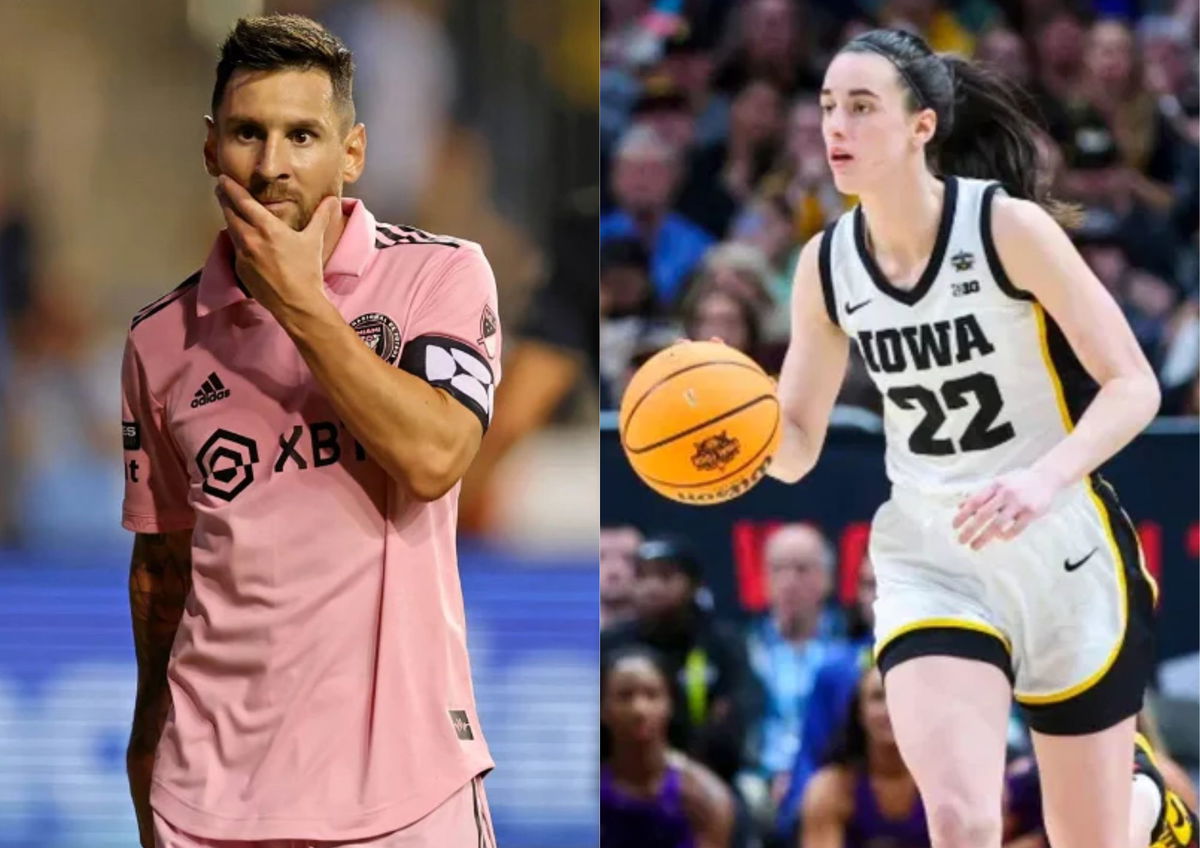
Imago
Credits: IMAGO

Imago
Credits: IMAGO
The influence of big-name players in sports cannot be underestimated. Consider Lionel Messi, for instance—a legendary figure in the beautiful game who needs no introduction. The Argentinian superstar has been spearheading a soccer revolution in the United States since joining MLS side Inter Miami. While his historic arrival in America will be celebrated for generations, it may surprise you to learn that Messi still falls short of matching the impact of WNBA superstar Caitlin Clark!
Watch What’s Trending Now!
That too, after the fact that MLS racks up $50 million more than WNBA. Well, to make this a bit clear for you, let’s delve into the media deals of these respective leagues—an aspect that has become a hot topic of discussion among netizens online. The WNBA earns $200 million annually under its new deal, while the MLS brings in $250 million per year.
While it showcases that America’s most prestigious top-flight soccer competition is way ahead of the women’s basketball league, the courtesy of an MLS fan page, @MLSMoves, on X (formerly Twitter) has shared a rather start reality. Keeping aside the popularity, nature, or genre of the sport, the key difference between both leagues is that the WNBA consists of only 12 teams, compared to the MLS’s 30 clubs.
ADVERTISEMENT
Article continues below this ad

USA Today via Reuters
Mar 3, 2024; Iowa City, Iowa, USA; Iowa Hawkeyes guard Caitlin Clark (22) controls the ball during the first quarter against the Ohio State Buckeyes at Carver-Hawkeye Arena. Mandatory Credit: Jeffrey Becker-USA TODAY Sports
When dividing the overall payday they receive from the media deals, it turns out that each WNBA team is pocketing approximately $16.6 million annually, whereas MLS teams receive about $5-6 million per year after accounting for production costs. However, it doesn’t end here as what actually comes into play is the partners of both leagues. Comparing the exposure of the two, the WNBA benefits from being broadcasted on renowned channels and streaming platforms like ESPN/ABC, which undoubtedly will attract more casual viewers.
ADVERTISEMENT
Article continues below this ad
Meanwhile, the MLS is limited by its placement behind a paywall, or in simpler terms, the MLS Season Pass on Apple TV+. But imagine, if someone like Caitlin Clark has significantly boosted the WNBA’s profile, then there is arguably no bigger sports star than Lionel Messi, who would likely generate massive ratings if featured on networks like ESPN, TNT, or NBC. Then again, the MLS’ lack of initiative to make itself a more global brand and accessible to its fans on a larger scale has hindered it from limiting its earning potential.
How MLS is losing out on its potential to generate more than the WNBA despite the presence of Lionel Messi?
One can say, and even the X community suggests that the MLS’ media deal with Apple TV appears to be losing its luster. If the Don Garber-led league needs to witness a surge in its numbers, they require a substantial number of subscribers to its Season Pass in order to share revenue from new sign-ups with Apple. Notably, the current estimates place MLS subscriber numbers at around 2 million, a figure that has actually hit a plateau stage. Perhaps to grow this base, the league would need to enhance the quality of play and attract more high-profile players. Then again, this challenge appears to be an uphill battle under the terms of their long-term Apple partnership.

USA Today via Reuters
Jan 29, 2024; Riyadh, Saudi Arabia; Inter Miami forward Lionel Messi (10) takes the pitch before the match against the Al-Hilal SFC at Kingdom Arena. Mandatory Credit: Victor Fraile Rodriguez Rodriguez-USA TODAY Sports
Interestingly, Garber, the commissioner of Major League Soccer, terms this collaboration “one of the greatest deals in sports history,” insisting that the board has no regrets about signing a 10-year deal prior to Messi’s arrival and also the possibility of missing out on the additional broadcast value that could have come with having one of the world’s biggest soccer stars in the league.
ADVERTISEMENT
Article continues below this ad
What are your thoughts on this? Share in the comments.
ADVERTISEMENT
ADVERTISEMENT
ADVERTISEMENT
ADVERTISEMENT



